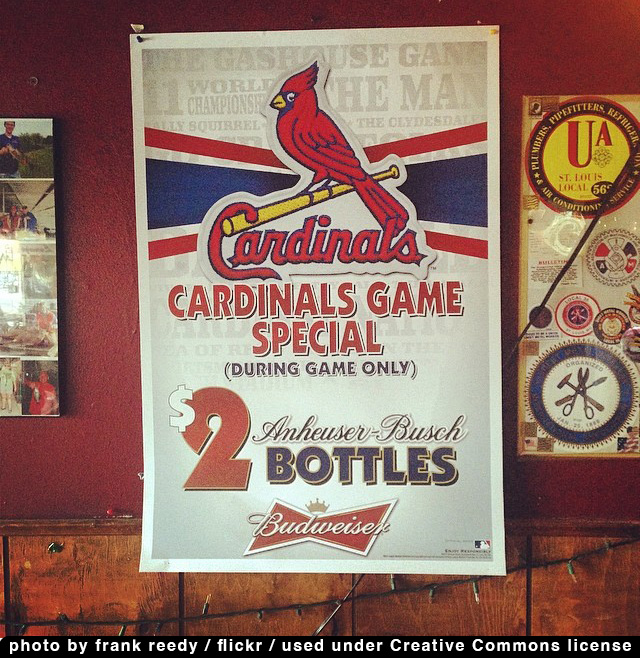Calling for a Last Call: MLB Pitcher Warns of Reckless Beer Sales
 There are times when we might look at our situation and despair. For instance, despite a pennant run and an investment in continuing to develop an elite baseball team, you begin the season ravaged by injuries, particularly to your starting pitching. Or, to use a completely different example, you have long advocated against the corrosive effects of alcohol money in public events, including organized sports, only to find a public reluctant to listen.
There are times when we might look at our situation and despair. For instance, despite a pennant run and an investment in continuing to develop an elite baseball team, you begin the season ravaged by injuries, particularly to your starting pitching. Or, to use a completely different example, you have long advocated against the corrosive effects of alcohol money in public events, including organized sports, only to find a public reluctant to listen.Oddly enough, in both instances, the answer seems to be Matt Strahm.
Strahm is a 31 year-old journeyman starter for the Philadelphia Phillies. He is a month into what may be a breakout season, converting from the bullpen to emergency starter with staggering success and posting a 2.31 ERA (so far) with over 12 strikeouts per 9 innings. And in a rare moment of ballplayer candor, he blasted the emerging consenus among Major League Baseball (MLB) owners that alcohol sales must be extended beyond the 7th inning.
Most MLB teams stop alcohol sales after the seventh inning stretch. The given rationale is that this gives patrons a few innings to sober up before driving home, a major concern based on data showing that a significant number of fans given an alcohol test at an MLB game were over the legal limit yet intended to drive home, including 1 in 5 men between 20 and 35. Further research, conducted conicdentally at Citizen's Bank ballpark in Philadelphia, suggests that giving fans longer to sober up also has significant effects on incidents of violence and assault.
Yet baseball has also been working to shorten the games. With shorter games come fewer opportunities to purchase concessions, including alcohol. Not only is alcohol a high-margin product for team ownership, but alcohol companies have considerable leverage themselves, spending hundreds of millions of dollars in advertising at stadiums and during broadcasts. Under sway of this leverage, several teams in the league have already buckled under and decided to extend beer sales past the traditional cutoff.
Speaking to the "Baseball Isn't Boring" podcast, Strahm was quick to identify the recklessness in the idea. "So now with a faster-pace game--and me just being a man of common sense--if the game is going to finish quicker, would we not move the beer sales back to the sixth inning to give our fans time to sober up and drive home? Instead, we're going to the eighth, and now you're putting our fans and our family at risk driving home with people who have just drank beers 22 minutes ago."
Strahm lay the blame firmly on the intertwining of shortsightedness and greed. "When you mess with billionaires' dollars, [they] find a way to make their dollars back," he said. "My thing is, when you're looking at the safety of your fans, that's probably not the smartest decision."
Strahm did not make it clear whether he knew of or supported the campaign to Free Our Sports, the campaign intended to remove Big Alcohol's stranglehold on athletics in the United States. But he did follow up his comments by throwing 5 and a third shutout innings against Seattle. And now that he has the public's attention, perhaps it's time to make that demand again, and louder: do not let Big Alcohol kill or fans, friends, and family. Do not trust voluntary alcohol sales restrictions that lift at the first whiff of a thinner wallet. Listen to Matt Strahm and Free Our Sports.
READ MORE about the campaign to Free Our Sports.